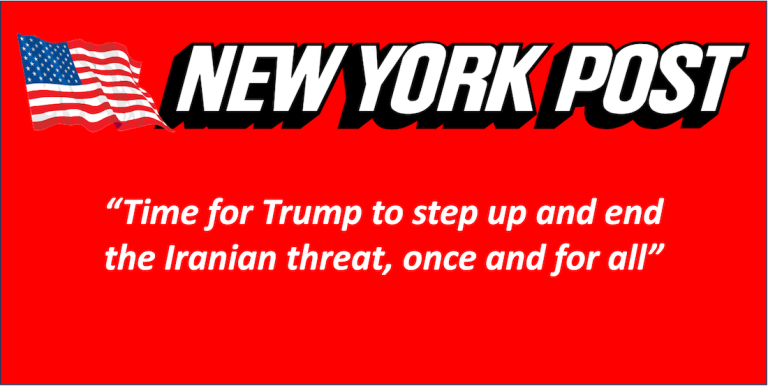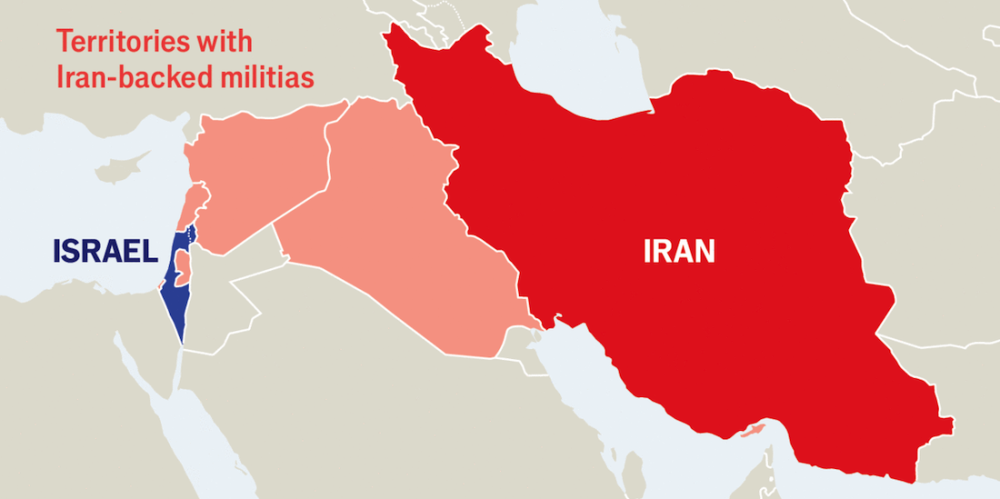
Calls for military escalation against Iran ignore history, global consensus, and the urgent need for realistic, diplomatic solutions to nuclear tensions.
New York, N.Y. — By the Staff of The Stewardship Report: Let the truth-telling begin.
Who, What, When, Where, and Why
In the wake of renewed hostilities between Israel and Iran—now entering their fifth day of open conflict—calls from some U.S. commentators, including recent New York Post editorials, urge former President Donald Trump to “step up and end the Iranian threat once and for all.”
These voices demand a return to “maximum pressure” and even hint at military intervention as a solution to Iran’s nuclear ambitions and regional influence. But who truly benefits from such escalation, what are the likely consequences, and why does this rhetoric ignore both the facts on the ground and the lessons of history?

The Realities of Iran’s Nuclear Program
Despite alarmist claims, U.S. intelligence agencies and the International Atomic Energy Agency (IAEA) agree: Iran is not currently building a nuclear weapon.
While Iran has enriched uranium to levels just below weapons-grade and amassed enough material for potential weapons, significant technical and logistical hurdles remain before it could field a usable nuclear device. Most importantly, U.S. and international assessments indicate Iran is at least three years away from being able to deliver a nuclear weapon, should it choose that path.
Recent Israeli airstrikes have only delayed, not destroyed, Iran’s nuclear capabilities, and experts warn such actions may actually incentivize Iran to pursue weaponization—a path it has so far avoided.

The Failure of “Maximum Pressure”
The Trump administration’s “maximum pressure” campaign—marked by withdrawal from the Joint Comprehensive Plan of Action (JCPOA), sweeping sanctions, and threats of military action—did not moderate Iran’s behavior. Instead, it accelerated Iran’s nuclear program, empowered hardliners in Tehran, and increased the risk of war.
Far from producing a “better deal,” this strategy eroded U.S. leverage and made diplomatic solutions harder to achieve. As Iran’s nuclear “breakout time” shrank, the world became less safe, not more.
Diplomacy: The Only Viable Solution
The consensus among U.S. intelligence, global regulators, and America’s closest allies is clear: diplomacy remains the only realistic path to preventing a nuclear-armed Iran and ensuring regional stability. Even military strikes—whether by Israel or the U.S.—can only delay, not eliminate, Iran’s nuclear capabilities, and almost certainly push Iran to weaponize its program in secret.
The Joint Comprehensive Plan of Action, for all its imperfections, provided
unprecedented oversight and verifiable limits on Iran’s nuclear activities. Its collapse
has left the world with fewer tools to monitor and constrain Iran’s ambitions.
The Dangers of Escalation

Calls for Trump to “step up” ignore the lessons of two decades of U.S. involvement in the Middle East. Military escalation risks igniting a wider regional war, endangering U.S. personnel, allies, and global energy supplies. Even within Trump’s own administration, there is deep division over the wisdom of further entanglement in the region, with many “America First” voices urging restraint and a focus on domestic priorities. The risk of miscalculation is real—and the costs would be borne by ordinary people across the region and beyond.
A Better Path: Multilateral Engagement
Preventing nuclear proliferation and promoting stability requires more than threats and sanctions. It demands sustained, multilateral diplomacy—engaging not just Iran, but also regional stakeholders like Saudi Arabia, the UAE, and international partners. This approach balances the imperative of non-proliferation with Iran’s legitimate right to peaceful nuclear energy, as recognized under international law. Only by restoring trust, rebuilding oversight mechanisms, and addressing the broader security concerns of all parties can lasting solutions be found.
Conclusion: Rejecting Fear, Embracing Facts
The New York Post’s call for Trump to “end the Iranian threat” through forceful confrontation is not only unrealistic—it is dangerously counterproductive. History shows that pressure and punishment alone do not produce security; they breed resistance and instability. The world faces a narrowing window for action, but that action must be rooted in dialogue, not destruction. The U.S. and its allies have the tools, experience, and moral responsibility to lead with diplomacy, not bombs.
Let this be your act of resistance—not through yelling, but through clarity. Not with conspiracy, but with conscience.
Summary (for audio)
Calls for Trump to escalate against Iran ignore intelligence assessments and the failures of past “maximum pressure” strategies. Iran is not currently building a nuclear weapon, and military action would only delay—not prevent—its nuclear ambitions, while risking a wider war. Diplomacy and multilateral engagement remain the only viable solutions for preventing nuclear proliferation and ensuring regional stability. The U.S. must reject fear-driven rhetoric and lead with facts, restraint, and global cooperation.